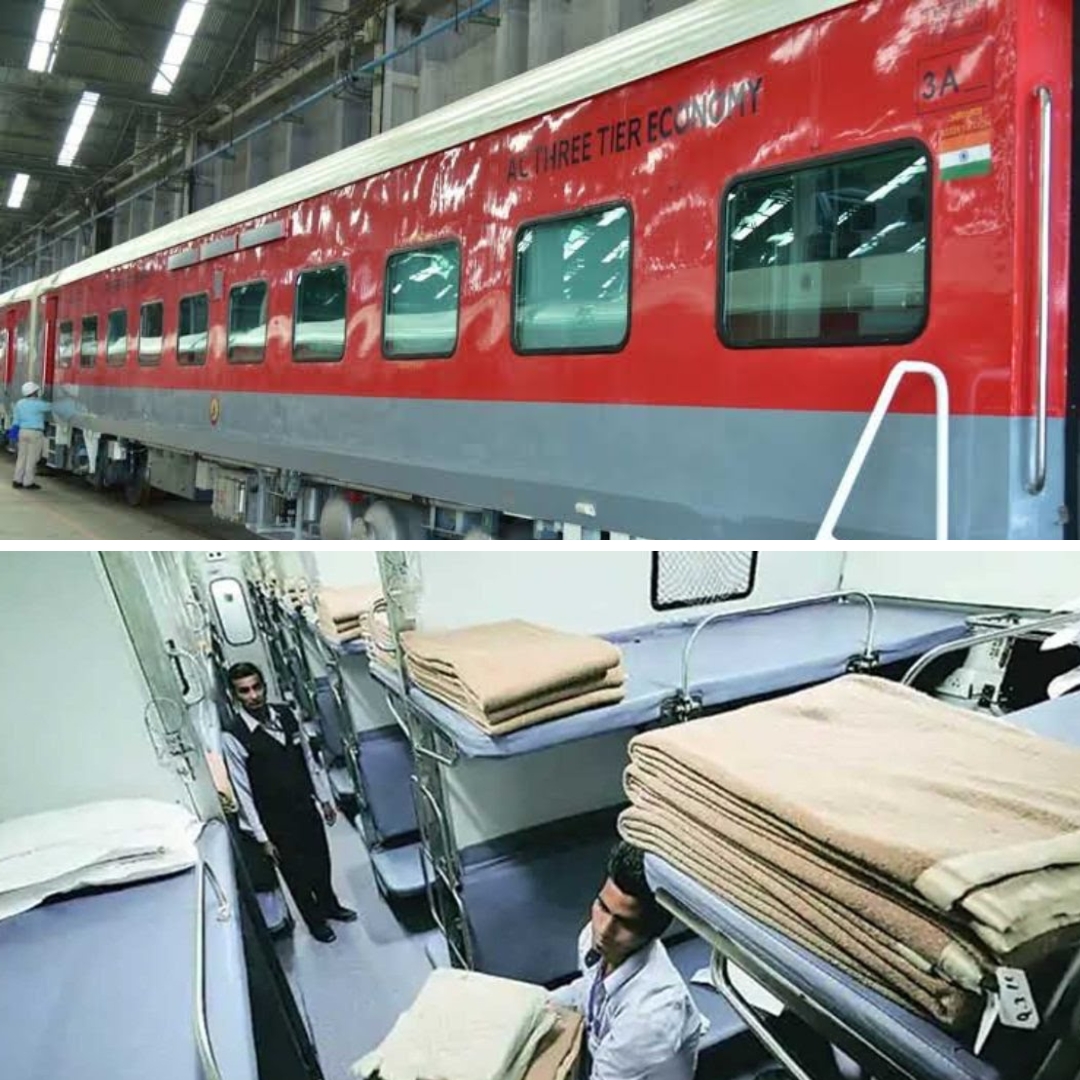An RTI response dated October 21, 2024, has revealed that Indian Railways washes its wool blankets in AC coaches only once a month, raising serious concerns about passenger safety and hygiene. This infrequent washing schedule increases the risk of germs and infections spreading among passengers. Experts recommend stricter cleaning protocols and personal hygiene practices to mitigate these risks.
Hygiene Risks for Passengers
The revelation that Indian Railways washes its blankets only once a month poses significant risks to passenger safety. In the confined environment of a train, where many people are seated close together for long periods, the potential for cross-contamination is high. Germs can accumulate on unwashed blankets, increasing the likelihood of infections being transmitted among passengers who may touch or use them. A retired railway official noted that inadequate hygiene practices could lead to outbreaks of respiratory infections or other communicable diseases, especially as passengers rely on these blankets for warmth during their journeys. Housekeeping staff corroborated that blankets are typically only sent for cleaning if they are visibly dirty or emit an unpleasant odour.
Maintaining Hygiene Practices
To address these hygiene concerns, both transport operators and passengers must adopt effective cleanliness measures. Transport operators should implement regular disinfection schedules for all surfaces, particularly high-touch areas like seats and handrails. Installing hand sanitiser dispensers throughout the train and ensuring proper ventilation can further enhance air quality and reduce airborne pathogens. Passengers can also play a role in maintaining hygiene by practicing good personal hygiene—regular hand washing or sanitising, wearing masks when feeling unwell, and avoiding eating in confined spaces can significantly lower the risk of spreading germs. Public awareness campaigns can educate travellers on these practices, fostering a culture of cleanliness.
Recent Developments
The RTI findings have sparked outrage among passengers, with many expressing their concerns on social media about the lack of cleanliness in blankets provided by Indian Railways. Some users have even shared personal experiences of health issues attributed to using unwashed blankets, prompting discussions about bringing personal bedding for future journeys. Additionally, it was highlighted that while passengers do not pay separately for blankets, they can opt for additional bedroll kits on certain trains like Garib Rath and Duronto at an extra cost. The Indian Railways operates 46 departmental laundries and 25 BOOT laundries across the country, but questions remain about the oversight and quality control of these services.
The Logical Indian’s Perspective
At The Logical Indian, we believe that passenger well-being should be a top priority in public transport systems. The alarming frequency of blanket washing in Indian Railways highlights a critical need for improved hygiene protocols to protect commuters’ health. It is essential for authorities to take immediate action to enhance cleaning practices and ensure a safe travel environment for all. What steps do you think should be taken to improve hygiene standards in public transport?












